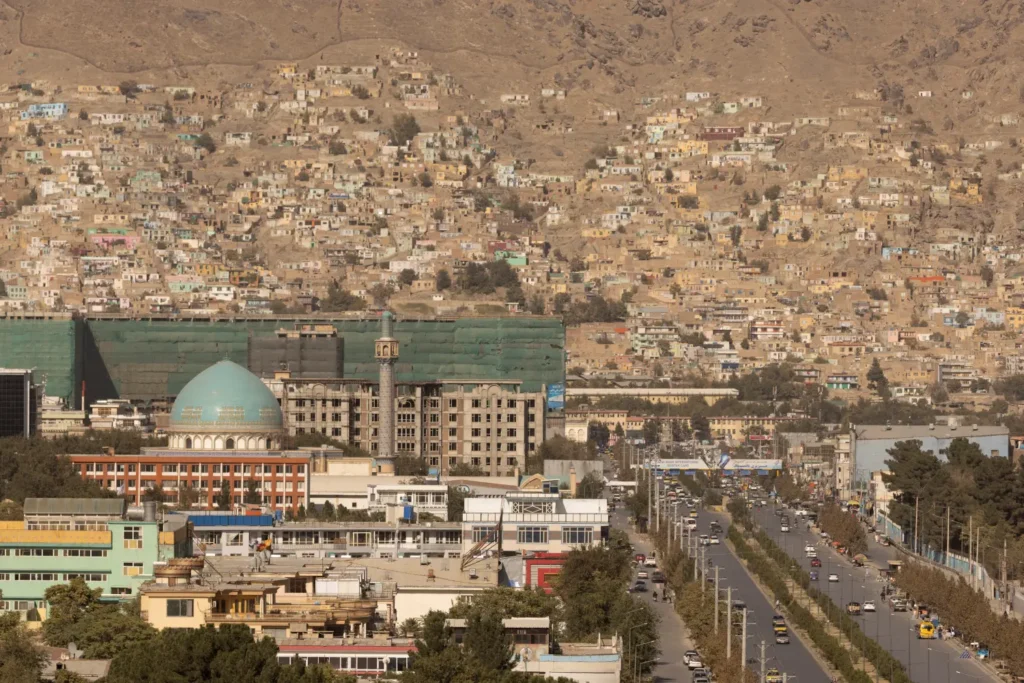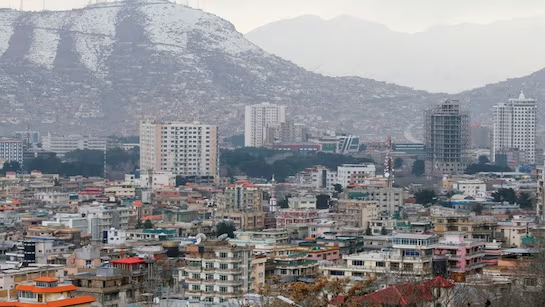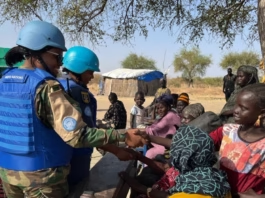The UN Security Council’s Dilemma
The UN Security Council (UNSC) is currently confronted with significant challenges as it navigates its response to the Taliban’s regime in Afghanistan. The division among council members illustrates the complexity of addressing the situation within the country, where differing national interests and strategic priorities complicate consensus. Some member states advocate for a pragmatic engagement with the Taliban, arguing that such an approach is essential to address pressing humanitarian needs and prevent a further deterioration of the socio-economic conditions in Afghanistan. Others, however, adopt a more rigid stance, insisting on the necessity of upholding strict conditions and human rights standards before any form of dialogue or recognition is considered.
This divide poses a profound dilemma for the UNSC, as the recognition of the Taliban could lead to the alleviation of suffering for millions of Afghans while simultaneously risking legitimatizing an authority that has demonstrated a disregard for basic human rights. The council faces the stark choice of balancing these competing interests amid growing concerns that prolonged inaction may exacerbate Afghanistan’s dire humanitarian crisis. The economic collapse precipitated by the withdrawal of international support poses a significant risk, and it is essential for the UNSC to consider how its decisions may impact the Afghan population’s immediate well-being.
Moreover, member states also grapple with the implications of any engagement on regional security dynamics. Deporting diplomatic efforts towards a suitable framework might inadvertently empower extremist factions within or outside Afghanistan. Thus, the UNSC’s members must tread carefully, owning a substantial responsibility to navigate these complex considerations. Ultimately, the direction they choose will not only affect Afghanistan’s future but could also influence the international community’s approach to governance within similarly tumultuous regions.
Humanitarian Crisis and Women’s Rights
The humanitarian crisis in Afghanistan has reached a critical juncture, with over 23 million individuals requiring urgent assistance. The situation exacerbates an already dire context, particularly for women and girls who are significantly affected by the policies implemented by the Taliban since their return to power in August 2021. These policies have curtailed fundamental rights and freedoms, leading many observers to deem the conditions as a form of ‘gender apartheid’.
Access to education has been severely restricted, with secondary schools for girls being closed across the country. The Taliban’s assertion that they support women’s education appears hollow when juxtaposed with their actions. Many girls remain barred from classrooms, denying them the opportunity to pursue knowledge and future careers. This lack of educational access not only hinders personal development but also negatively affects Afghanistan’s long-term economic prospects, as an educated workforce is crucial for progress. Furthermore, this systemic exclusion from education contradicts international human rights agreements, which stipulate that education is a right for all individuals, regardless of gender.
In the workforce, the Taliban’s stringent restrictions further exacerbate the humanitarian crisis. Women are increasingly excluded from numerous professional sectors, effectively stripping them of their means of livelihood. Many humanitarian organizations report that women workers are crucial for facilitating aid delivery, as they have unique access to women in communities. However, the Taliban’s policies have created significant barriers for these organizations to operate effectively, thereby complicating efforts to address the staggering needs of the population.
Consequently, the repercussions of these policies extend beyond individual rights and freedoms; they also impact the overall humanitarian response. Efforts at providing essential services, such as food, shelter, and medical care, are hampered by the need to navigate an environment marked by restrictive gender roles. The intersection of humanitarian aid challenges and women’s rights underlie a complex scenario that demands urgent attention and action from the international community.
Global Reactions and Strategies for Engagement
The rise of the Taliban in Afghanistan has evoked a wide array of responses from the international community, revealing a complex landscape of diplomatic strategies. Western nations, notably the United States and the European Union, have adopted a cautious approach towards engagement, firmly conditioning any potential cooperation on the Taliban’s commitment to upholding human rights. Specifically, they emphasize the importance of protecting the rights of women and girls, adhering to principles of freedom of expression, and preventing Afghanistan from becoming a haven for terrorism. This stringent stance reflects a broader concern about the Taliban’s historical record concerning human rights, which poses a dilemma for nations keen to address humanitarian needs without legitimizing a regime known for oppression.
In contrast, some countries advocating for dialogue argue that engaging with the Taliban could be a pragmatic solution to stabilizing the region. For instance, countries like China and Russia have expressed a willingness to work with the Taliban, highlighting the necessity of collaboration for economic aid and reconstruction projects. These nations view engagement as essential for facilitating trade and securing their own strategic interests, which may include countering the influence of the West in Central Asia. They assert that isolating the Taliban could exacerbate the humanitarian crisis and strengthen extremist factions. This perspective emphasizes the importance of national sovereignty and non-interference, framing their relationship with the Taliban within a context of mutual respect and stability.
The divergent approaches taken by these countries underscore the complexities surrounding international relations with Afghanistan. While Western responses focus on human rights and moral obligations, others prioritize political pragmatism and regional security. The implications of these contrasting strategies may shape Afghanistan’s future on the world stage, determining not only the legitimacy of the Taliban government but also the broader geopolitical dynamics in South Asia and beyond.
The Internal Dynamics of the Taliban Governance
The governance of Afghanistan under the Taliban is characterized by significant internal dynamics that reflect the complexities of the group’s ideological landscape. Central to this are the two main factions within the Taliban: the pragmatic faction and the ideological faction. The pragmatic faction, primarily composed of individuals who recognize the necessity of addressing public welfare, advocates for policies that may align more closely with the needs of the Afghan populace. They tend to support initiatives aimed at economic stability, humanitarian aid, and the provision of essential services, seeking to gain legitimacy both domestically and internationally.
Conversely, the ideological faction remains steadfast in its goal to establish a strictly adhered ‘pure Islamic system’. This faction prioritizes the enforcement of stringent interpretations of Islamic law, often emphasizing ideological purity over practical governance. Such internal tensions create a challenging environment for the Taliban, as the need to address urgent socio-economic issues clashes with the ideological imperatives of certain factions. This divide raises critical questions about the Taliban’s capacity to govern effectively amidst ongoing crises, including economic collapse, humanitarian emergencies, and pervasive security challenges.
As these internal rifts persist, the potential outcomes for Afghanistan’s governance remain uncertain. An escalating struggle for power between factions could lead to fragmentation within the Taliban, adversely impacting their already fragile control over the country. Alternatively, a successful negotiation of these internal dynamics might result in a more balanced approach to governance, whereby pragmatic policies are implemented without completely alienating the ideological base. Such outcomes will ultimately shape the future direction of Afghanistan, influencing how the country copes with its numerous challenges in the coming years.





